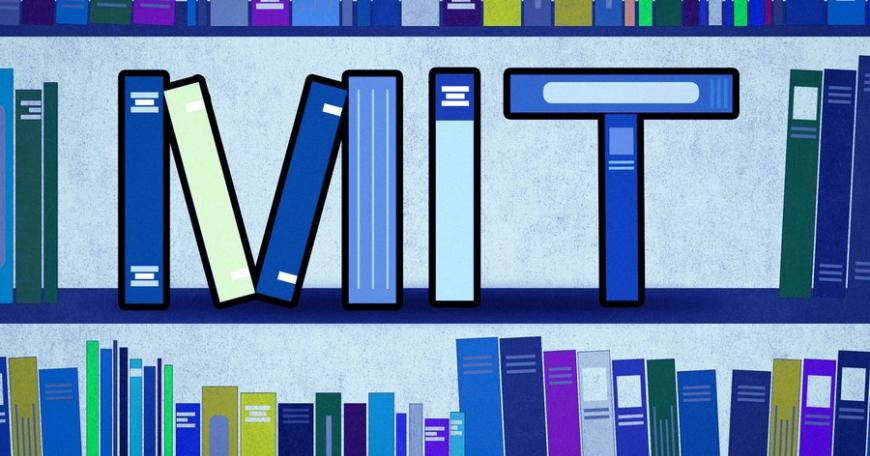
Summer 2022 recommended reading from MIT
Enjoy recent books from 5 Open Learning community members
It is summertime once again, which means that many of us will find ourselves with new opportunities to dive into books. MIT News recently released its Summer 2022 recommended reading list with a selection of offerings published by MIT faculty and staff within the last year. Five books from members of the MIT Open Learning community are featured — with subjects ranging from artificial intelligence literacy, Dungeons & Dragons, data engineering wisdom, learning science practices, and a dissection of Jamaican spirituality. Happy reading!
“Computational Thinking Education in K-12: Artificial Intelligence Literacy and Physical Computing” (MIT Press, 2022)
Edited by Harold Abelson, the Class of 1922 Professor of Computer Science and Engineering at MIT, and Siu-Cheung Kong; includes one chapter by Cynthia Breazeal, professor of media arts and sciences and dean for digital learning at MIT Open Learning; Blakeley H. Payne, research assistant in the MIT Media Lab; and Daniella DiPaola, research assistant in the Media Lab
This book offers an overview of computational thinking and its importance in K–12 education. Topics include the rationale for teaching computational thinking, programming as a general problem-solving skill, the “phenomenon-based learning” approach, and the educational implications of the explosion in artificial intelligence research, discussing, among other things, the importance of teaching children to be conscientious designers and consumers of AI.
“Journeys Through the Radiant Citadel” (Wizards of the Coast, 2022)
Chapter by D. Fox Harrell, professor of digital media and artificial intelligence and director of the MIT Center for Advanced Virtuality
“Journeys Through the Radiant Citadel” is an anthology of 13 stand-alone adventures set in wondrous lands for the roleplaying game “Dungeons & Dragons.” Harrell’s chapter, “The Nightsea’s Succor,” is inspired by the diverse historical continuities, innovations, and kindred futures shared across African American people, roots, and ancestors.
“97 Things Every Data Engineer Should Know: Collective Wisdom from the Experts” (O’Reilly, 2021)
Edited by Tobias Macey, associate director of platform and devops at MIT Open Learning
In this book, contributors from notable companies including Twitter, Google, Stitch Fix, Microsoft, Capital One, and LinkedIn provide 97 concise and useful tips for cleaning, prepping, wrangling, storing, processing, and ingesting data. Current and aspiring engineers will learn powerful real-world best practices for managing data big and small.
“Learning Engineering Toolkit: Evidence-Based Practices from the Learning Sciences, Instructional Design, and Beyond” (Routledge 2022)
Three chapters by Aaron Kessler, assistant director of learning sciences and teaching at MIT Open Learning; Scotty D. Craig; Jim Goodell; Dina Kurzweil; Scott W. Greenwald; and Janet Kolodner
As learning engineering becomes an increasingly formalized discipline and practice, new insights and tools are needed to help education, training, design, and data analytics professionals iteratively develop, test, and improve complex systems for engaging and effective learning. This book is a practical guide to the rich and varied applications of learning engineering. In his three chapters, Kessler discusses learning engineering as a process, how it applies the learning sciences, and other practical tools from the learning sciences.
“Fearless: A Dissection of Jamaican Spirituality: A Path to Unity and Triumph for the African and Non-African Diaspora” (Self-published, 2021) By Bianca Rose, administrative assistant at MIT Open Learning
“Fearless” explores variations of the Jamaican culture, from its people (i.e. Maroons, Rastafarians, and Jamaicans), to the militant language of Jamaican Patois, to the sound of Reggae music and impact of dance, and through the lessons from legendary freedom fights. Rose observes how Rastafarianism, music, sports, and other cultural aspects have influenced people across the African and non-African diaspora.
A version of this story was originally published at https://news.mit.edu/ on
July 8, 2022.
Summer 2022 recommended reading from MIT was originally published in MIT Open Learning on Medium, where people are continuing the conversation by highlighting and responding to this story.

